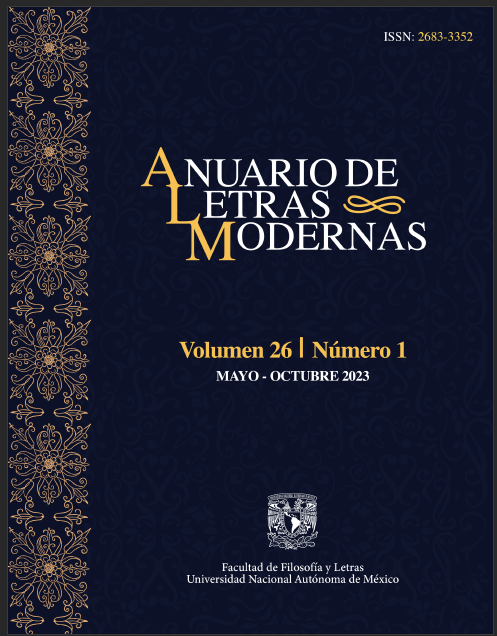Character and Action in José Saramago’s Dramaturgy. A Reading of A Noite
Main Article Content
Abstract
The plays A Noite (1979), Que farei com este livro? (1980), A segunda vida de Francisco de Assis (1987), In nomine Dei (1993), and finally, Don Giovanni ou o dissoluto absolvido (2005) constitute the body of dramatic works published by José Saramago. In these fictional texts, the relationships between the self and the other encourage action —not unlike real life. This article about A Noite analyses the links between the action, creation, and development of the Saramaguian dramatic character. The text aims to identify whether the actions practiced by the characters go beyond the driving and final cause for the existence of the dramatic persona and if the dialogue contains principles of an ethical ideology that may have influenced Saramago’s aesthetics. Given this hypothesis, in addition to the works mentioned above, we look at some non-fictional texts by José Saramago associated with the works of Patrice Pavis, Edélcio Mostaço, Robert Abirached, and Luigi Pirandello: Speeches from Stockholm, Notebooks from Lanzarote, and Letter of Duties and Obligations of Citizens. The dialogue between fiction, non-fiction, and theory contributes to understanding the theatrical text’s particularities and its elements, manly character and action, and the concepts of ideology, ethics, and aesthetics. Ultimately, this article shows how to identify Saramago’s ethical ideology and its manifestations in the aesthetics of his dramatic texts. This analysis suggests that the transition between spaces in José Saramago’s plays can be seen as a strategy that goes beyond the artistic realization of the character. Movement and action play an essential role in the practice of Saramago’s ethical ideology: the duty to have duties towards the other; being a character is not enough, one must be a citizen, a character-citizen.

